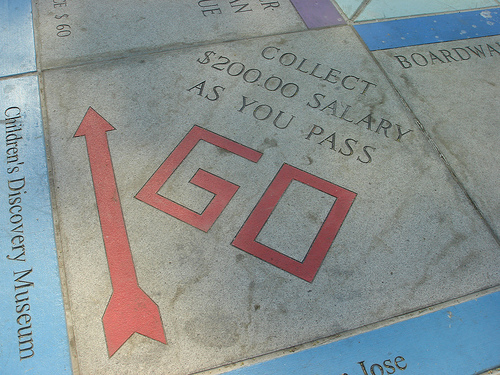For Christmas last year Wayne Macauley’s partner gave him a t-shirt printed with the words Most Underrated 2012. ‘I don’t wear it out that often but it’s a beautiful thing,’ Macauley quips. The t-shirt is a reference to last year’s inaugural Most Underrated Book Award (MUBA) which Macauley won for his novel The Cook. ‘[The most underrated book] is a very catchy line and I think people like the idea of it,’ Macauley says. ‘[The award] got quoted a number of times afterwards in blogs and reviews and even when the book went overseas.’ As Macauley notes, the title of this award, ‘has a hook’. The MUBA, says the Small Press Network (which organises the award), ‘aims shine a light on some of the outstanding titles that are released by small and independent publishers that, for whatever reason, did not receive their fair dues.’ This year’s shortlist was recently released. It includes Fish-Hair Woman by Merlinda Bobis (Spinifex Press), Staunch by Ginger Briggs (Affirm Press), Whiskey Charlie Foxtrot by Annabel Smith (Fremantle Press) and The Hum of Concrete by Anna Solding (MidnightSun Publishing). The winner will be announced next week.
‘[Last year] there was some uncertainty as to whether this was a badge that authors particularly wanted or not,’ says Martin Shaw, Books Division Manager at Readings. ‘But most people got what it was about – it was trying to make sure that nobody got completely overlooked – which does happen,’ Shaw says.
For this reason Readings gives the MUBA shortlist, ‘the biggest blast we can,’ says Shaw. The books are being promoted online, in their newsletter and on a table in store. Last year Macauley noted a contrast between the MUBA and another award he was shortlisted for (which was announced in the same week). ‘The MUBA shortlisted winners were really prominent in the Readings Carlton store… I couldn’t see anything displayed for [the other award],’ he says. As Macauley notes the MUBA’s tie with bookshops is critical, ‘If the books are not promoted in the store then the award is great for you spiritually but not really commercially.’
Readings reported a tenfold increase in sales of the full shortlist of the 2012 MUBA. ‘[The MUBA] definitely makes a difference,’ Shaw says. ‘Now that we’re into the second year it will build up as a [list on] the best of the small press.’
For Macauley, winning the MUBA also had other benefits. ‘The book had been a runner up and it was great for it to win something. But from a personal perspective I felt like I was being recognised with an independent award for an independent attitude,’ he says. That’s something he values as a person with an interest in independent publishing and theatre. That independence is relevant to buyers too says Shaw, ‘A lot of book buyers out there are looking for something a bit different, something that isn’t massively hyped about from large commercial houses.’
Looking forward Macauley is excited by the potential of independent publishing. The old structures are being broken down he says, and new possibilities are opening up. ‘My view of that is that we should all be brave and should never be afraid to take risks,’ he says. ‘Everyone should give wholly and utterly of themselves to their work. They should make their work in their own voice. They should make it the very best that they can.’ The thing that never changes with independent publishing, says Macauley, is that ‘we’re making art out of integrity.’
The 2013 Most Underrated Book Award winner will be announced at the Independent Publishing Conference on Friday 15 November.



